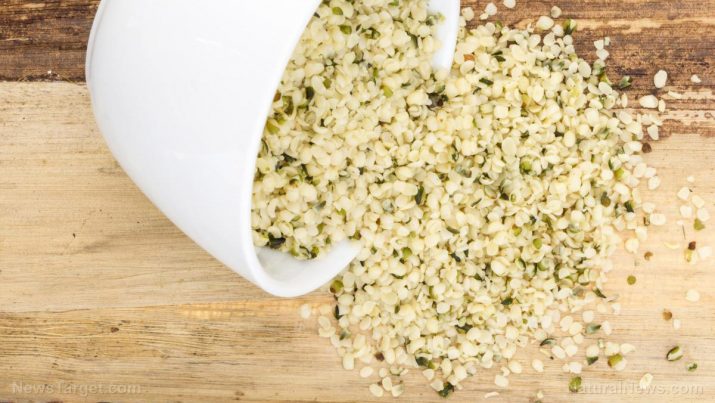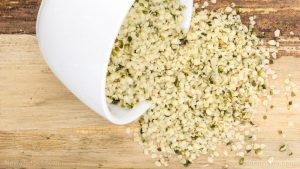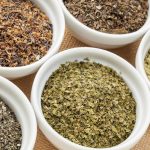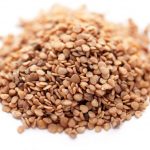
Hemp – sources, health benefits, nutrients, uses and constituents at NaturalPedia.com
Thursday, July 20, 2017 by Frances Bloomfield
http://www.naturalnewsherbs.com/2017-07-20-hemp-sources-health-benefits-nutrients-uses-and-constituents-at-naturalpedia-com.html

Hemp (Cannabis sativa) is a non-drug variety of cannabis grown primarily for the seeds and fiber. Unlike its more famous cousin, this fast-growing plant only has trace amounts of the psychoactive component tetrahydrocannabinol (THC), but higher concentrations of non-psychoactive cannabidiol (CBD). The seeds of the hemp plant are the part that yields the most number of benefits thanks to the diversity of health-promoting substances.

List of known nutrients
Hemp is loaded with such beneficial nutrients as:
- Cannabidiol
- Fiber
- Folate
- Iron
- Magnesium
- Omega-3 fatty acids
- Omega-6 fatty acids, including gamma-linolenic acid
- Phytosterols
- Potassium
- Protein
- Vitamin E
- Zinc
Nearly half of hemp is composed of healthy oil, and the large majority of that oil is made up of omega-3 fatty acids and omega-6 fatty acids. Both of these polyunsaturated fats play important roles in keeping the body healthy: while omega-3 fatty acids lower the risk of cardiovascular disease, omega-6 fatty acids regulate metabolism and maintain bone health. Too much omega-6 fatty acids can be detrimental, but fortunately, hemp has the ideal ratio of omega-3 to omega-6 fatty acids.
The protein content of hemp is notable due to it being high-quality protein. This means that the protein is more digestible and bioavailable thanks to the concentration of essential amino acids. Moreover, hemp contains no phytates, which are common substances found on vegetarian protein sources that interfere with mineral absorption.
Medicinal uses for hemp
Hemp can be used to remedy numerous medical conditions, primarily:
- Alzheimer’s disease
- Atherosclerosis
- Cancer
- Cardiovascular disease
- Constipation
- Diarrhea
- Menopause
- Multiple sclerosis
- Osteoporosis
- Premenstrual syndrome (PMS)
- Psoriasis
- Rheumatoid arthritis
Hemp contains vitamin E, an antioxidant vitamin that can lower the risk of atherosclerosis. Vitamin E does this by limiting the oxidation of low-density lipoprotein (LDL) or bad cholesterol and by eliminating blood clots. The presence of phytosterols also contributes to hemp’s ability to lower cholesterol.
Hemp is an excellent source of dietary fiber, perhaps the best preventive measure against constipation and diarrhea. The fiber in hemp is notable as it is composed of both insoluble and soluble fiber. Insoluble fiber bulks up stool and allows it to pass through the digestive tract with ease, while soluble fiber contributes to overall digestive health by increasing digestive juice production and slowing down glucose absorption.
Body systems supported by hemp
Taking hemp can be good for the following organs and systems:
- Digestive system
- Heart
- Immune system
- Skin
The combination of polyunsaturated fats and fiber make hemp one of the best plants for maintaining a normal, healthy heart. One specific and rare fatty acid, gamma-linolenic acid, has been shown to lower bad cholesterol while boosting the levels of good cholesterol.
Ways to use hemp
Hemp has a mild, nutty flavor that makes it go well in smoothies, pastas, salads, and even burgers. Those who wish to add crunch to yogurt and oatmeal can turn to hemp for that missing texture.
Aside from being an excellent source of protein, hemp can be used as a nut substitute by individuals who have nut allergies.
Where to learn more
- Hemp – The ultimate cash crop, health food and environmental savior rolled into one
- Hemp Protein: Eat the Nutrients
- Hemp is legal to grow in nine states, but feds still threaten raids and prison time for farmers
- Hemp proves useful yet again, but the U.S. remains uninterested
- Hemp: the most versatile plant in the world that is still prohibited from being grown in (most of) America
Summary
Hemp is an incredibly versatile and useful plant that is good for overall health. It keeps the heart and digestive system strong, while staving off such diseases as atherosclerosis, constipation, and diarrhea. Despite these benefits, hemp is banned and restricted in many countries, so it should be approached with caution.
Sources include:
MedicalNewsToday.com
HerbWisdom.com
Care2.com
Livestrong.com
TrinitysKitchen.com
Tagged Under: Tags: hemp





